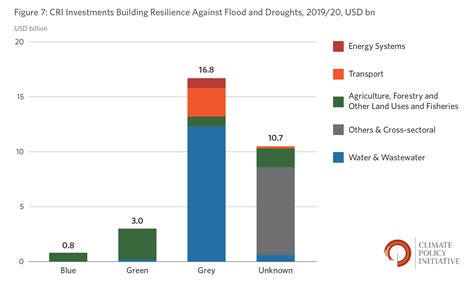The fear of failure (FoF) is a pervasive human experience, a silent saboteur that often keeps us from pursuing our dreams, whether they lie in an ambitious career move, a challenging fitness goal, or a bold financial investment. It’s the whisper that tells you ‘what if you fall?’ when you’re about to take a leap. But what if we could reframe failure not as an endpoint, but as a critical part of the journey to success? This article will explore strategies to combat FoF and empower you to embrace risks across the most significant aspects of your life.
The Ubiquitous Grip of Fear of Failure
Fear of failure isn’t merely about the outcome; it’s often rooted in the fear of judgment, shame, or the perceived loss of identity. It can manifest as procrastination, perfectionism, or an outright refusal to try anything new. This insidious fear can stunt personal and professional growth, keeping us locked in comfort zones that, while safe, ultimately prevent us from reaching our full potential. Recognizing its presence is the first step towards dismantling its power.
Many high-achievers experience FoF, sometimes even more acutely, as the stakes feel higher. They might fear losing their status, reputation, or the approval of others. Understanding that this fear is a common, albeit limiting, human trait can help normalize the experience and allow us to approach it with greater self-compassion and strategic thinking.

Reframing Failure: A Stepping Stone, Not a Stumbling Block
The most powerful weapon against FoF is a mindset shift: seeing failure as data, feedback, and a necessary component of learning and innovation. Every successful individual or endeavor has a history punctuated by numerous ‘failures’ that ultimately paved the way for breakthroughs. Adopting a growth mindset, where abilities and intelligence can be developed through dedication and hard work, directly counters the fixed mindset that views failure as a reflection of inherent inadequacy.
When we reframe a ‘failure’ as an experiment that yielded valuable information, the emotional sting diminishes, and the lesson becomes clear. Ask yourself: What did I learn? What could I do differently next time? This perspective transforms anxiety into curiosity and encourages iterative improvement rather than paralysis.
Conquering Career Risks with Confidence
In your career, FoF can manifest as hesitating to apply for a promotion, shying away from a challenging project, or not pursuing an entrepreneurial dream. The potential for rejection, criticism, or financial instability can feel overwhelming.
Actionable Career Strategies:
- Break It Down: Large career goals can seem daunting. Break them into smaller, manageable steps. Focus on mastering each step, celebrating progress, and reducing the perceived risk of the overall goal.
- Seek Mentorship: Connect with individuals who have taken similar risks and succeeded (or failed and learned). Their insights can provide guidance, perspective, and reduce feelings of isolation.
- Develop a Backup Plan: Knowing you have contingencies can alleviate some anxiety. This isn’t about expecting failure but preparing for various scenarios, which builds confidence to take calculated risks.
- Focus on Skill Development: Instead of fearing the outcome, focus on the skills you’ll gain regardless of the result. This intrinsic reward system makes the effort worthwhile.

Embracing Fitness Challenges Without Hesitation
Fitness goals often involve pushing physical and mental boundaries, making them fertile ground for FoF. Whether it’s starting a new exercise routine, training for a marathon, or committing to a diet, the fear of not meeting expectations, of looking foolish, or of physical discomfort can deter us.
Actionable Fitness Strategies:
- Set Realistic Goals: Instead of aiming for perfection, set achievable, incremental goals. Celebrate small victories, like consistently showing up or improving by a small margin.
- Focus on Process, Not Perfection: Shift your focus from the end result (e.g., losing a certain amount of weight) to the daily habits (e.g., exercising 3 times a week, eating balanced meals). The process is where sustainable change happens.
- Find a Supportive Community: Join a gym, a running club, or find an accountability partner. Shared experiences and mutual encouragement can significantly reduce self-consciousness and motivate consistent effort.
- Practice Self-Compassion: Understand that setbacks are part of any fitness journey. Instead of harsh self-criticism, treat yourself with kindness, learn from the lapse, and get back on track.

Navigating Financial Risks with Prudence and Bravery
Money matters are inherently tied to security and future well-being, making financial decisions particularly susceptible to FoF. Investing, starting a business, or making a significant purchase can trigger anxiety about potential losses or making the ‘wrong’ choice.
Actionable Finance Strategies:
- Educate Yourself: Knowledge is power. Learn about basic investing principles, market trends, and financial planning. Understanding the mechanisms reduces the unknown and thus, the fear.
- Start Small: You don’t need to make massive investments immediately. Start with small, diversified investments to get comfortable with the process and observe market fluctuations without catastrophic risk.
- Consult Experts: A financial advisor can provide objective insights, help you assess risk tolerance, and develop a personalized plan that aligns with your goals and comfort level.
- Build an Emergency Fund: Having a robust emergency fund provides a safety net, reducing the fear associated with taking financial risks, as you know you have a cushion in case of unexpected challenges.

Building Resilience: Your Armor Against Doubt
At the core of combating fear of failure is building resilience – the ability to bounce back from adversity. Resilience isn’t about avoiding challenges, but about developing the mental and emotional strength to navigate them effectively. It involves cultivating self-awareness, developing coping mechanisms, and fostering a belief in one’s ability to overcome obstacles.
Engage in practices that strengthen your mental fortitude, such as mindfulness, meditation, or journaling. Reflect on past challenges you’ve overcome; these serve as powerful reminders of your inherent strength and capacity to adapt. Surround yourself with supportive individuals who encourage your growth and offer constructive feedback rather than judgment.

Conclusion: The Path to Unlocked Potential
The fear of failure is a natural human emotion, but it doesn’t have to dictate your life choices. By understanding its roots, reframing your perception of failure, and implementing practical strategies across your career, fitness, and financial endeavors, you can systematically dismantle its power. Embrace the journey of taking calculated risks, learning from every experience, and building unwavering resilience. Your greatest achievements often lie just beyond the comfort zone, waiting for you to bravely step forward.




